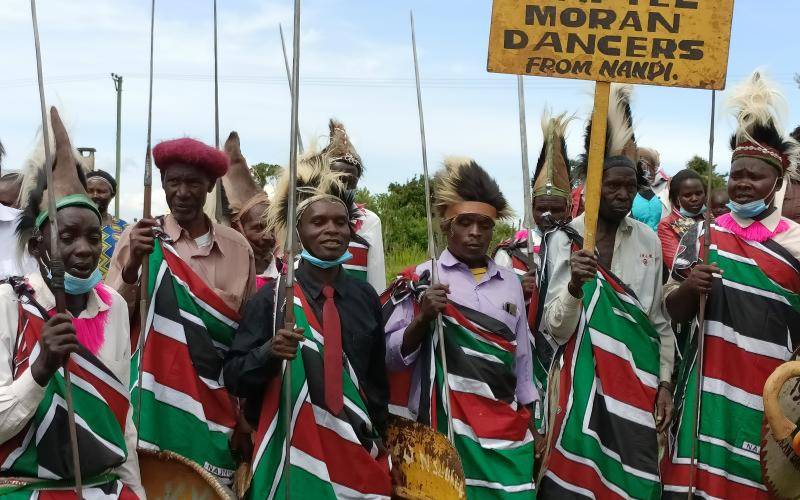×
The Standard e-Paper
Join Thousands Daily

Formed in 1957, Kaptel Moran dancers in Nandi County remains a strong group regardless of dynamic transformation in education and technologies.
The group has defied all odds to maintain the cultural norms of the community through folk songs that relate the ancient Kalenjin set up with contemporary society. It is famed for the Kalenjin signature song, Ngolili belio (praising an elephant).
